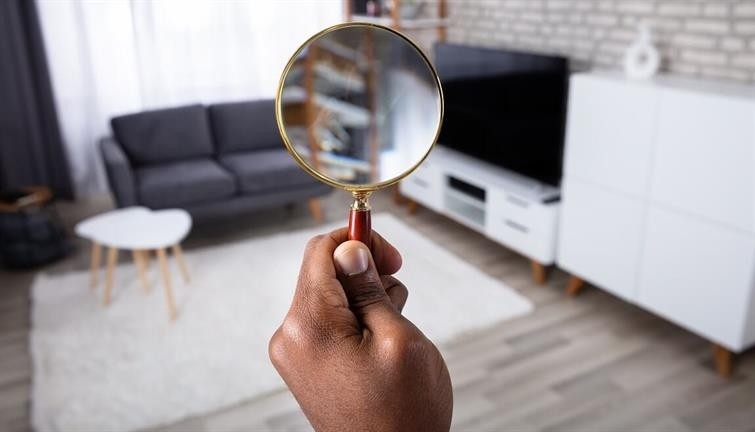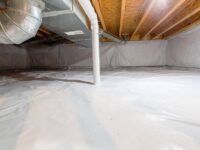Are Apartment Inspections as Valuable as Home Inspections?

When it comes to real estate transactions or rental agreements, the value of a thorough property inspection cannot be overstated. While home inspections are widely recognized for their importance in the home-buying process, the significance of apartment inspections might not always be as apparent. However, ensuring the structural integrity, safety, and overall condition of an apartment is equally crucial. This article explores why apartment inspections hold as much value as traditional home inspections and why equal attention should be given to both.
Understanding the Scope of Apartment Inspections
While the setting may differ, the core elements inspected in both apartments and traditional homes are strikingly similar, underscoring the universal importance of thorough inspections. Here’s what inspectors focus on, regardless of the property type:
- Electrical Systems: Inspectors examine wiring, outlets, service panels, and electrical safety devices in apartments, just as they do in homes. This ensures the system is safe, up to code, and capable of handling the resident’s electrical load.
- Plumbing: From faucets and fixtures to drains and water heaters, the plumbing system’s efficiency and leak-free operation are crucial in apartments, mirroring the scrutiny applied in stand-alone homes. Potential issues like poor water pressure or hidden leaks are red flags in any dwelling.
- HVAC System: The functionality and maintenance state of heating, ventilation, and air conditioning systems are evaluated. In apartments, this might focus on individual units or central systems, similar to the inspection process for a house’s HVAC system.
- Structural Integrity: While apartments may not have a traditional foundation like a detached home, inspectors still assess the building’s structural elements for signs of wear or damage. This includes the apartment’s walls, ceilings, floors, and any balconies or patios, ensuring they are sound and secure.
- Windows and Doors: The condition, operation, and sealing of windows and doors are inspected to ensure they provide proper security, insulation, and are free of leaks, much like in a house.
- Appliances: Built-in or provided appliances in apartments undergo testing for functionality and safety, a practice equally applied in home inspections to ensure appliances are in good working order.
- Ventilation and Moisture: Proper ventilation plays a vital role in controlling moisture, which is a key factor in preventing mold growth. As part of routine inspections, exhaust fans in kitchens and bathrooms are checked to ensure they’re functioning effectively. In areas like Naperville, taking the extra step of scheduling a Mold Inspection in Naperville, IL can help catch hidden issues early and protect your property from long-term damage.
- Safety Features: Smoke detectors, carbon monoxide detectors, and fire extinguishers in apartments are tested and inspected to confirm they meet safety standards, a precaution equally vital in standalone homes.
Despite the smaller footprint of an apartment compared to a standalone house, the potential for issues that could impact livability and safety remains significant. An apartment inspection aims to uncover any hidden problems that could lead to costly repairs or health hazards, just as a home inspection does.
The Equal Need for Diligence
- Safety Concerns: Both apartments and houses require a safe living environment. Electrical issues, gas leaks, or faulty smoke detectors pose the same risk, regardless of the dwelling type. Apartment inspections help identify these hazards to ensure the safety of occupants.
- Maintenance and Repair Needs: Apartments, much like houses, can have maintenance issues that go unnoticed without a thorough inspection. Water damage from leaks, issues with heating and cooling systems, and wear and tear on appliances and fixtures can all affect the quality of life and incur significant repair costs.
- Investment Protection: For buyers, an apartment is as much an investment as a house. Ensuring that this investment is sound requires a detailed inspection to identify any issues that could affect the property’s value. For renters, understanding the condition of the apartment can prevent disputes over security deposits and responsibilities.
The Benefits of Apartment Inspections
Informed Decision-Making: Knowledge of the apartment’s condition empowers buyers or renters to make informed decisions. It can influence negotiation on price or lease terms and prioritize any needed repairs before moving in.
Cost Savings: Identifying and addressing issues early can prevent more significant expenses down the line. For apartment buyers, this might mean negotiating repairs with the seller or adjusting the offer price accordingly. For renters, it could mean requesting necessary repairs before signing a lease.
Peace of Mind: Ultimately, the knowledge gained from an apartment inspection offers peace of mind. Understanding that the living space is safe, functional, and free of major issues allows for a more comfortable and stress-free occupancy.
Conclusion: The Indispensable Value of Apartment Inspections
Just as with traditional homes, apartments deserve a thorough inspection to ensure they are safe, comfortable, and a sound investment. The process of an apartment inspection provides critical insights into the condition of the property, helping to safeguard the health and financial well-being of its occupants. Whether you’re looking to buy or rent, insisting on an apartment inspection is a wise decision that underscores the care and diligence you invest in your living environment.
If you’re considering an apartment purchase or lease then don’t underestimate the importance of a comprehensive inspection.





